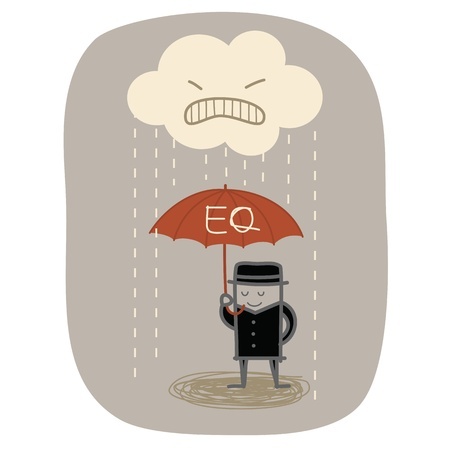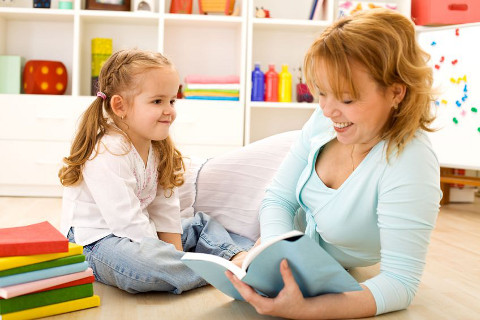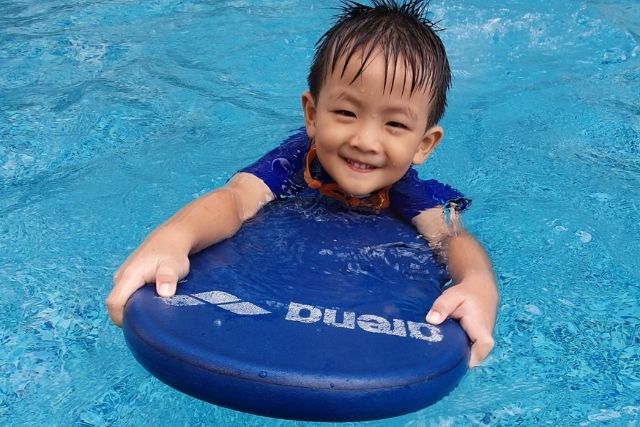In our sophisticated world today where children’s needs are no longer just basic, some parents go beyond having them acquire fundamental knowledge and skills – these parents look to raise their children emotionally intelligent.

What does it mean to be emotional literate?
Emotional intelligence has six capacities:
- Self-perception
- Self-encouragement
- Mind-frame adjustment
- Compassion development
- Emotion
- Relationship management
Emotional maturity is present when children are able to identify, accept, organize, and manage their feelings. Similar to putting a child in an academic system to be taught, emotional literacy requires children to go through a process or training to learn how to distinguish, compartmentalize, sort out, and regulate their emotions. This aspect of self-readiness is critical to get the children to move forward – an absence of emotional intelligence will affect their participation in any future undertaking.
Today, an increasing number of educators and psychologists are looking towards emotional intelligence to solve and enhance learning capabilities. In the US, the State of Illinois passed a bill in 2003 establishing social and emotional learning in schools. Currently, students are using thousands of emotional-literacy programs in US schools as previous studies have continuously demonstrated that non-cognitive skills – such as those that makeup of emotional intelligence – proved to be a more useful set of indicators of children’s potential capabilities. Such studies have also concluded that emotional health can actually set the foundation for future success at school, work, and relationships.
How can parents guide their children?

Is it possible for parents to teach emotional intelligence? Do they have to undertake training to guide their children?
These are just some of the questions parents have asked.
Yes, social-emotional learning exists to help both children and adults to walk through processes to gain knowledge, skills, and attitudes to manage emotions and achieve related personal goals. However, parents will be surprised to know that some of the steps are just simply logical and common sense, and they can consciously undertake the responsibility to coach their children.
Emotion coaching requires those closest to the children to help them to identify different feelings, subsequent responses (following emotional breakdown), stress-relief steps or approaches; control impulses; and understand the perspectives of others. During the coaching process, adults can also show ways to get involved in groups, communicate and interact with others, listen to others, and win or lose gracefully. These adults will also attempt to teach problem-solving, forgiveness, and anger management.
Fundamentally, emotion coaching starts with acknowledging or validating children’s perspectives and allowing them to express their unhappiness. While sympathizing and agreeing with their feelings, adults can also create teaching opportunities out of tantrums or conflicts. Using non-controlling language, compassion, and rationale, adults can also effectively encourage children to be emotionally aware.
An overall effort
Children with unresolved issues resemble those with emotional baggage. Such children do not have the necessary skills to organize and manage their emotions, and this could potentially disrupt their focus, and affect subsequent success. In addition, their social interaction will also be affected as they are not equipped to handle relationships and conflicts.
Emotional intelligence is essential for children to handle challenging circumstances. Emotionally literate children are healthier, capable, self-confident, and respectful of others. Children’s ability to navigate interpersonal dynamics, and regulate emotions will have a profound effect on their future. Today, emotional literacy programs can help children learn how to be less aggressive and anxious; and maximize their reasoning, planning and working abilities. Parents, educators and administrators need to embrace the idea that emotional intelligence can be taught, and they should look to provide for such learning or training opportunities.
By Caroline Yeung.
Caroline has over 18 years of communication experience and she has worked with technology and consumer companies. Her recent interest in Early Childhood Education has led her to work towards a certificate from The UCLA Extension in California. Caroline’s previous teaching experience also came from working with junior college and polytechnic students in Singapore.
* * * * *
Like what you see here? Get parenting tips and stories straight to your inbox! Join our mailing list here.
Want to be heard 👂 and seen 👀 by over 100,000 parents in Singapore? We can help! Leave your contact here and we’ll be in touch.


























































Leave a Comment: